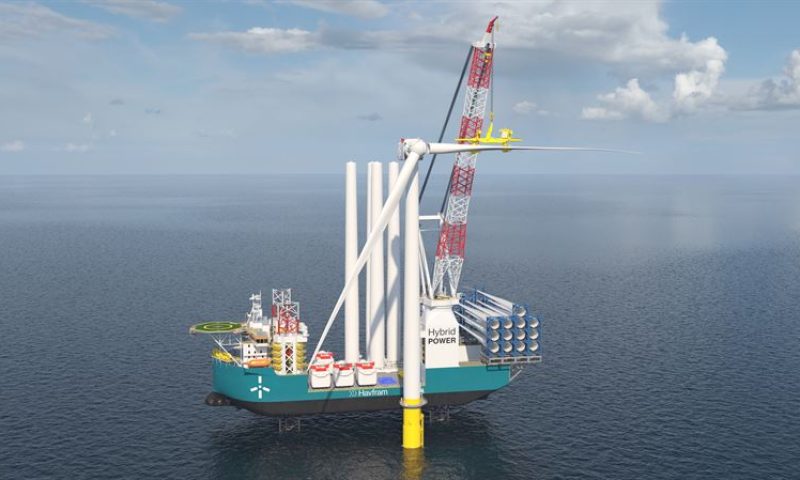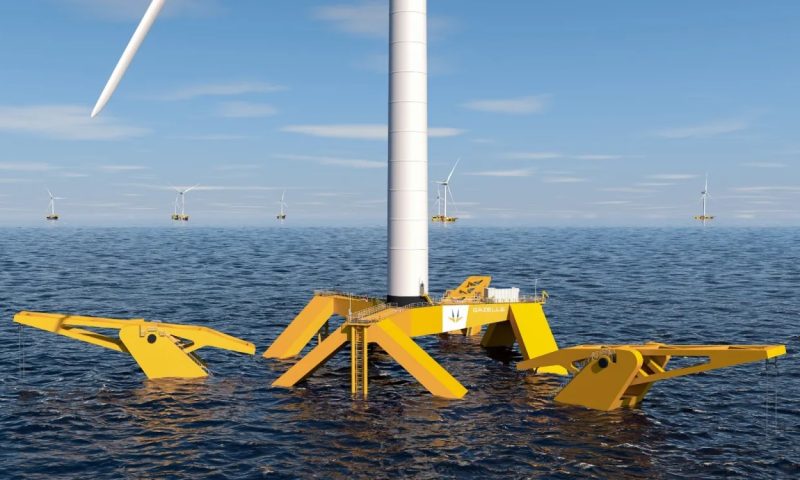
ABB Partners with China’s State Grid to Integrate Large-Scale Renewables
ABB Power Grid’s HVDC transformer and high-voltage technology an essential part of integrating large-scale renewables in China
ABB’s Power Grids business has won several major orders to supply advanced HVDC converter transformers and high-voltage equipment for three 800 kilovolt (kV), ultrahigh-voltage direct current (UHVDC) transmission links, owned by the State Grid Corporation of China (SGCC), in China. The links will help in integrating hydro, wind and solar power generation, whilst reducing CO2 emissions. Financial details were not disclosed

Powering Nanchang and East China with green energy: Lights of Nanchang – at the end of 1,700 Km Yazhong-Nanchang green energy link
“We are glad to see a recovery in demand for reliable and clean energy, as the Chinese economy gradually returns to normality following the COVID-19 outbreak. Ultrahigh-voltage electricity transmission, enabled by pioneering technologies from ABB, is a critical element of China’s vision of stronger and greener grids. We have full confidence in the resilience of China’s economy.” said Claudio Facchin, President of ABB’s Power Grids business.
World’s most powerful transmission links
The transmission links will be among the world’s most powerful. Each link will transport up to 8,000 megawatts (MW) of electricity – individually enough power to meet the needs of around eight million people in China(1).
The 1,700-kilometer Yazhong-Nanchang link is part of China’s West-East Electricity Transmission initiative. It helps the hydro-resource-rich Sichuan Province, Southwest China, to transmit green energy to the load center of Jiangxi Province in East China. Once complete, the project is expected to reduce approximately 16 million tons of coal consumption and 40 million tons of CO2 every year.
The 1,100-kilometer Shaanbei-Wuhan link marks an important step for SGCC in developing global UHVDC systems standards. And the 1,500-kilometer Qinghai-Henan project is a UHV channel specially designed for the transmission of clean energy, including solar and wind power.
As part of the solution, ABB Power Grids will provide key technologies to ensure and safeguard the reliable, efficient, and smooth transmission and distribution of electricity over these long-distance links – resulting in minimal losses and optimal power quality. Key technologies include HVDC converter transformers, components such as wall bushings, capacitor banks, dead tank breakers and HVDC switches.
ABB Power Grids – a pioneer of ultrahigh-voltage direct current (UHVDC) technology
ABB’s Power Grids business was a key technology provider to SGCC’s first UHVDC transmission link. The 6,400 MW, 2,000 kilometer-long Xiangjiaba-Shanghai link, provides hydroelectric power from South West China to the bustling city of Shanghai. Since then, ABB Power Grids has been constantly pushing the boundaries of long-distance transmission technology, partnering with SGCC in several key projects, thus contributing to energy security, as well as economic support and social development in China.
UHVDC technology is key to interconnect the electrical grids of regions, countries and continents to efficiently transport clean power in large volumes over long distances. UHVDC utilizes direct current (DC) electricity at extremely high voltages that can have as much as 40 percent lower losses than an equivalent conventional AC (alternating current) system. This means far less energy is wasted, more power reaches end users and carbon dioxide (CO2) emissions are reduced overall.
Once operational, the Qinghai-Henan project is estimated to reduce CO2 emissions by approximately 30 million tons per year – equivalent to over six million passenger cars being taken off the road(2).
SGCC is the largest utility company in the world with 1.1 billion customers and over 1 million kilometers of transmission lines. SGCC has a strong commitment to optimizing China’s available resources and, by utilizing ultrahigh-voltage transmission, has reduced emissions of CO2 by 820 million tons. These achievements are a key part of the Government of China’s energy strategy, aiming to promote the construction of power grids of all levels and improve the capability and efficiency of optimized resource allocation.













